
What is Labour's Big Idea? Reading Guide
25.09.21
While Labour Conference gathered in Brighton Mark Perryman from Philosophy Football went in search of books that seek to describe what the party’s recovery might look like.
It hadbeen a while, Labour Conference and the attendant World Transformed Festival hadn’t gathered since September 2019. Since then there’s been the disaster of the party’s 2019 General Election defeat, Keir Starmer’s election as Labour leader, the Coronavirus crisis, unimpressive Scottish, local and by-election results, and Jeremy Corbyn’s ongoing suspension as a Labour MP. Plenty to discuss, or more often argue over, then.
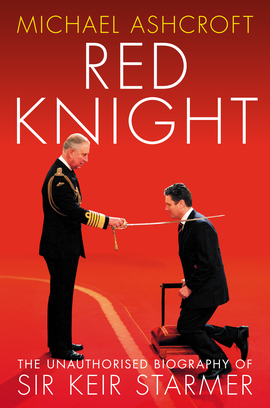
It is hardly ever mentioned but Keir Starmer had only been a Labour MP for a remarkably short time before becoming Labour leader, a shade under five years. Jeremy Corbyn 32 years, Gordon Brown 24 years, Tony Blair 11 years. Ed Miliband the same five years, but Ed had previously been a Labour Party special adviser, he knew the Labour Party inside out. Plus as Director of Public Prosecutions for Keir any such involvement in Labour would have been effectively precluded. Experience doesn’t necessarily mean better, or worse, but the lack of much in the way of Keir’s Labour backstory makes for political biographer Michael Ashcroft, his previous biographies include Rishi Sunak, Jacob Rees-Mogg and David Cameron, very hard work. Despite that Red Knight: The Unauthorised Biography of Sir Keir Starmer contains more than most currently know about Keir. A decent man, a campaigning lawyer, strong principles but thrust into a position his short period active in Labour let alone at Westminster leaves him dangerously exposed to simply going with the flow. ‘Captain Hindsight’ is an effective barb. Brighton is expected to settle that, we will see. Len McLuskey’s autobiography Always Red bids farewell as he stands down as a major figure in Labour politics since 2010 when he was first elected Unite General Secretary. A power broker in internal party politics of the old school who became Jeremy Corbyn’s most significant ally the first third of the book reveals the story of the man behind the machinations, a picture that hardly featured in the way he projected himself as a political operator which is a shame. The remainder of the book is his particular insider’s account of Labour under Miliband, Corbyn and Starmer, unashamedly partisan it is nonetheless a fascinating story of how a trade union operates inside Labour. A mode of operating his successor Sharon Graham won the General Secretary election on a platform of replacing, how that plays out crucial to the immediate future of Labour, and trade union, politics.
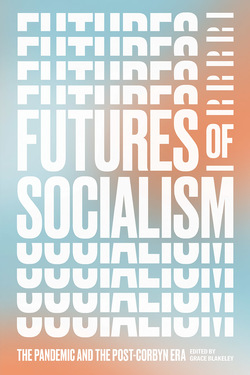
Both books deal as a key theme with 12.12.19 and its immediate aftermath. The seriousness of the setback Labour suffered, and the train of events that led to Keir becoming leader remain a potent part of the party’s present and will featured right across conference. Edited by Grace Blakeley Futures of Socialism : The Pandemic and the Post-Corbyn Era is the Corbynite interpretation of 2019 combining a belief that Corbynism must persist while not sparing any political blushes for what went wrong. Many of the contributors to Grace’s book would cite the late Leo Panitch as their single most important intellectual influencer, his final book, co-written with Colin Leys Searching for Socialism : The Project of the Labour New Left from Benn to Corbyn is likely to be a set text amongst a pessimistic left for a considerable time to come. Out of the Ordinary : How Everyday Life Inspired a Nation and How it Can Again by Marc Stears, formerly Ed Miliband’s Chief Speechwriter, offers one way to restore some optimism to Labour’s current fortunes. Staggeringly original while drawing on a wide range of inspirations, this is an argument that seeks to root Labour in locality and community. In Marc's book, he was a founder member, there is some overlap with the thinking of ‘Blue Labour’ a tendency that proffers a left affinity for patriotism, family and faith, a trinity that many would see as the antithesis of the progressive, Paul Embery has written Despised : Why the Modern Left Loathes the Working Class to convince readers otherwise. He may not convince, though dismissing his argument out of hand amounts to a counsel of despair, of next to no use either.
For the time being any transformation of the do-nothingness of despair into actually happening hope will inevitably be mapped on to a post-pandemic terrain. Luke Cooper’s Authoritarian Contagion: The Global Threat to Democracy absolutely connects the grounding of such a politics in a popular democratisation that provides a forthright alternative to the drift towards authoritarianism, personified , if you like, by Priti Patel. What Priti might do with what were previously considered pretty much inalienable rights doesn’t bear thinking about, it should, and Luke's book will help spark such thoughts.. The Great Recoil: Politics after Populism and Pandemic is the latest from Paolo Gerbaudo a theorist of an emergent digital opposition, and doesn’t disappoint in terms of the mix of ideas that challenge convention and innovation of practical application. As we shift from coronavirus crisis to post pandemic we’ll need both, in abundance. Whilst 2019-2021 might appear unprecedented in terms of a contest between the spread of disease versus a lockdown ‘crisis’ is a well-worn theme in left politics, too often deployed to mask an inability to interpret the significance of socio-economic change. Donald Sassoon, historian of socialism, in Morbid Symptoms: Anatomy of a World in Crisis provides the historical and global context to give due credence to the significance of such change, that both pre-dates the pandemic and has been accelerated by it. To challenge such change in the cause of something better Oli Mould offers a towering polemic in Seven Ethics against Capitalism: Towards a Planetary Commons that centres the necessity to resist co-option and subservience because as Margaret Thatcher once said, there is no alternative. Go Big : How to Fix the World by Ed Miliband is a welcome attempt to fuse the kind of holistic anti-capitalism of Oli with the Parliamentary Socialism Ed’s father Ralph was such a renowned critic of. An unworkable combination ? Yes too often it has proved to be, though the originality and cheerfulness of Ed’s ideas is a most welcome effort to convince it doesn’t have to be.
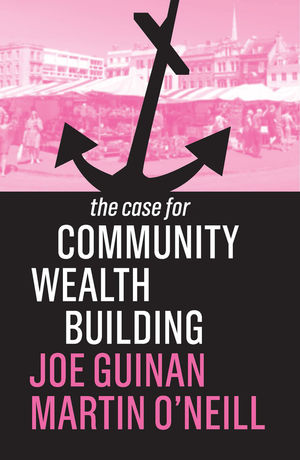
In 1979 In and Against the State was published by the quixotically titled ‘London Edinburgh Weekend Return Group’, a pioneering text , fiercely practical in applying a politics of active participation in the institutions we variously work for, depend upon, live under and a strategy towards not only resistance to them but their transformation, I still have my now very dog-eared copy . Hugely influential amongst a libertarian left strand struggling to survive Thatcherism The re-issuing of In and Against the State with a new introduction by Seth Wheeler and contributions from John McDonnell and John Holloway is welcome, timely and another reminder to those on our ‘side’ that, actually, there is an alternative but it might not be the one found in the textbooks of statist-socialism. Rather a revived version of such an alternative is to be located in a mix of popular democracy, local accountability and participation while delivering fully functioning and much improved services compared to the immiseration provided by decades’ worth of privatisation, especially 'outsourcing' of hitherto public services. Or in other words, The Case for Community Wealth Building as described by the authors Joe Guinan and Martin O’Neill, pioneered by Preston Council and increasingly practiced by Labour local authorities all over.
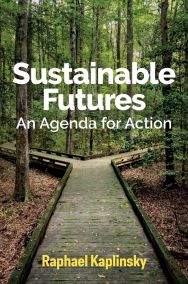
Such scale of ambition, from below and above, couldn’t be more urgent in the current era of both post pandemic and an actually existing climate emergency. Mathew Lawrence and Laurie Laybourn-Langton’s Planet on Fire : A Manifesto for the Age of Environmental Breakdown follows on from where Labour’s Corbyn era ‘Green New Deal’ left off. The threat of everlasting change for the worse borders on the unimaginable which leaves us with a party politics barely able to cope. The Green New Deal sought to square that circle yet labourism’s productivist tendency was always likely to blunt the urgency and scale of change required, and it did. The impetus now exists primarily outside of the party political Climate Change is Racist by key green thinker Jeremy Williams is typical, of the deep-seated radicalism this impetus is creating, Jeremy’s book a primer in linking climate change to global inequalities via a framing that is chosen to disturb, racism. Raphael Kaplinsky’s Sustainable Futures: An Agenda for Action is another response with a purposefully positive case for social-economic change out of adversity for the better. The political task remains to combine the harshness of Jeremy’s critique of root causes with Raphael’s positivism of a solution. Without that combination we will fail.
Class politics of a range of varieties has been experiencing that failure since the triumph of neoliberalism in the latter part of the twentieth century. The Shadow of the Mine : Coal and the End of Industrial Britain co-authored by Huw Benyon and Ray Hudson is an epic account of this defeat for an industry, and the communities and politics it helped produce. Of course such a defeat goes beyond simply one industry, one largely atypical version of working class community. Cynthia Cruz’s The Melancholia of Class : A Manifesto for the Working Class makes a hugely original case for such defeat as a contest between class assimilation versus class annihilation. The interesting part of her argument is that this contest serves to produce a working class culture that is fundamentally melancholic.
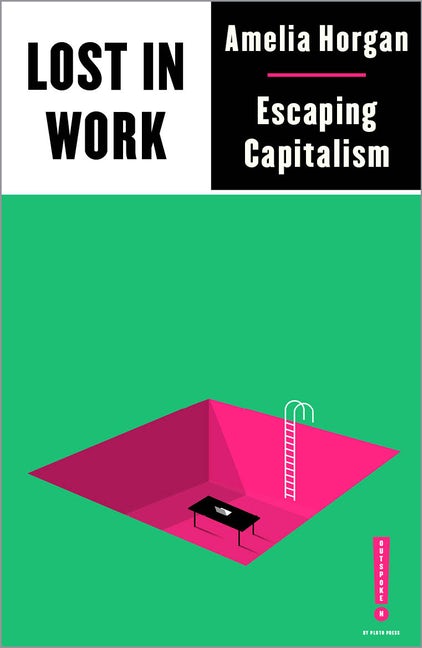
In this context it is noticeable how increasingly younger writers on the left are problematising the inescapable centrality of work not only to our everyday lives but the future society socialism promises. A manifesto for such a politics is provided by Amelia Horgan with Lost in Work: Escaping Capitalism. Jobification, slackers, resistance, play, a very different agenda to labouring under the illusion that employment is the best that such a socialist society can aspire to provide. The American writer Sarah Jaffe has been a key influence on the emergence of this post-work politics, her latest book Work Won’t Love You Back is certain to continue that, and deservedly so. Sarah’s against the exploitation, exhaustion and atomisation work produces but she also describes the means of escape; joy, pleasure and a satisfaction that is both of the individual and the collective. One alternative that the digital era has helped reinvent is a ‘sharing economy’ or perhaps that should be for the most part a so-called sharing economy. This is very much the view of author Tom Slee in his What’s Yours is Mine : Against the Sharing Economy. It is certainly the case that the likes of Airbnb and Uber serve no one’s interests except their owners and shareholders' at the expense of those doing the sharing. But to share, aided by online innovation, is a natural accompaniment to the kind of society the post-work thinkers articulate, a very different task for an ambitious left would be to set itself the aim to establish such organisations as a signpost towards the art of the possible.

Post work is an idea that has come from a radicalised left. Progressive patriotism is more difficult to locate. Championed by Keir Starmer as a new direction for Labour yet part of Ed Miliband, Gordon Brown and Tony Blair’s leadership politics before him. Jeremy Corbyn would also speak of a national story that includes the Levellers, the Tolpuddle Martyrs and Cable Street. Progressive patriotism is a multi-faceted idea that it would be quite wrong to write off as cover for a shift to the right, even if on occasion it is (mis) used for exactly that purpose. Edited by Paul Sng This Separated Isle is a fantastic starting point towards a radicalised patriotism featuring incredible photos and short punchy essays that portray this island of modern Britain as a contested space of despair versus hope. Owen Hatherley’s collection of his essays Clean Living Under Difficult Circumstances does something similar with an exploration of how architecture shapes lives and communities from Walthamstow to Edinburgh via ever-decreasing public toilets and the closure of public libraries. Enchanting and imaginative, with excursions to other nations as well, a truly great read. A Small Man’s England by Tommy Sissons focuses on England, a nation in Keir Starmer’s version of progressive patriotism entirely subsumed into the wrapping of himself in the Union Jack. In contrast Tommy’s book is a powerful argument for a solidarity that knows where it is coming from, England. What this is up against, the cultural and political legacy of an empire on which the sun never set, is the subject of Peter Mitchell’s Imperial Nostalgia: How the British Conquered Themselves. The failure to find the means to let go of this particular part of Britain’s national story is why that narrative is so trapped in the past in a manner that shapes our present. The pre-eminent thinker on a politics that has latterly acquired this progressive patriotism label remains Tom Nairn. His seminal work The Break- Up of Britain first published in 1977 is out once more in a new edition with an entirely original introduction by Anthony Barnett. Tom’s argument is that the British state is mired in an outdated and unworkable Union. Unionist Labour fundamentally rejects this and in Scotland has suffered the disastrous consequences, an electoral defeat not only epic but a key factor in Labour’s poor prospects of winning a British General Election on its own. Three independent nations, one island, Tom’s break-up has taken a while but despite Labour conference scarcely countenancing such a prospect few would doubt its coming.
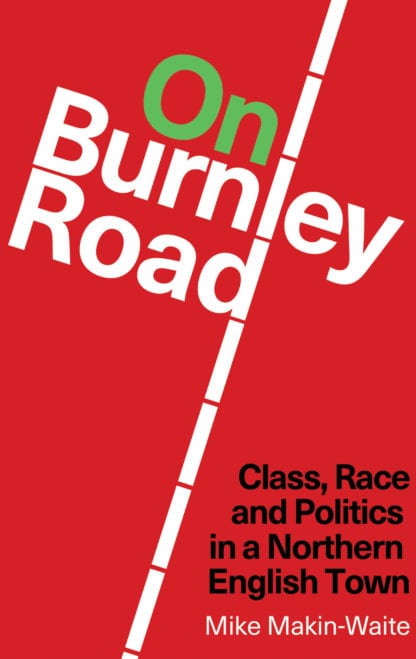
The reservations about the fusion of the national and the popular being any kind of basis for a Labour recovery are rooted in how this has traditionally been the politics of the far right. On Burnley Road : Class, Race and Politics in a Northern English Town is Mike Makin-Waite’s compelling account of the disastrous consequences in one northern town when such a politics and the issues they seek to exploit proceed unchallenged, the fascist British National Party (BNP) winning not only support but council seats too and at Labour’s expense. And it gets worse, in Codename Arthur Nick Lowles reveals for the first time the story of how an anti-fascist spy infiltrated the BNP, the undiluted fascism of their politics and how this directly led some of those that follow them to commit ever-increasing acts of violence, including bombings. The BNP, thankfully, are long gone, defeated by both broad, community led, campaigning and the tradition of splits that typifies these kinds of parties from the National Front in the late 1970s onwards when they seek to go wider than their fascist core to become an electoral force. Joe Mulhall’s Journeys into the Far Right brings this account right up to do with a resurgent politics that combines its racism and nationalism into a hate-filled, often violent, mix on an international scale from Britain, across Europe to the USA, India and Brazil. Both insider and analytical this is a handbook for a future none of us would want to see. Post-Internet Far Right : Fascism in the Age of the Internet by the writing duo who go by the name '12 Rules for What' informatively and expertly deconstruct the attractive idea that social media is where the left challengesthe 'MSM' aka mainstream media. Yes it does, a bit, but of far more significancec is the huge growth and hyper organisation of a digital far right ranging from conspiracy theorists to well-armed terrorist cells. A wake up call for those who switch on Novaramedia and comfort themselves all will be OK with the online world, it isn't.

The title of the latest book from Paul Mason says it all in terms of urgency and agency How to Stop Fascism and doesn’t disappoint. Parts of the left do have an unwelcome habit of sticking the label ‘fascist’ too readily, too lazily, with an apolitical abandon. Paul in contrast roots anti-fascism in an understanding of the history and ideology of where fascism come from in order to confront and defeat it in the here and now. Not just a good read, though it is, very much so, an absolutely essential one too.
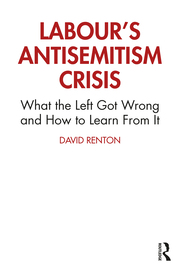
Central to fascist ideology, with the horrific consequence of the holocaust, is antisemitism. There can be no greater shame therefore than the sticking of this label, whether we like it or not, and I most certainly do not, antisemitic on the Labour Party. Few would argue that the entire party is antisemitic, not many believe the bulk of the membership are either. But by shrugging off with an air of angry resentment in the name of the party that some are Corbynism made a disastrous error. A combination of simple-minded conspiracism and a lazily ill-informed confusion of Jewishness as a whole with the actions of the Israeli government in particular isn’t a problem that anybody on the left should ignore, play down or reduce to whataboutery. Originally published in 1984 long before any of this Steve Cohen’s pathbreaking That’s Funny You Don’t Look Anti-Semitic : An Anti-Racist Analyis of Left Antisemitism provided an uncomfortable account of how antisemitism has always existed within the left , an outline of how otherwise once natural allies the left and the Jewish community need to relearn how to work together and a methodology towards making the crucial distinction between anti-zionism and antisemitism. After some years being almost impossible to get hold the book was made available again by No Pasaran Media in 2019 pointing to how very relevant Steve’s analysis remained but too late to do very much about what became known as ‘Labour’s antisemitism crisis’. In his Confronting Antisemitism on the Left : Arguments for Socialists Daniel Randall is very clear that his ambition is to bring That’s Funny up to date with a renewed purpose and energy, he does so, with considerable skill. This is a polemic aimed at erstwhile comrades, Daniel’s own politics, a particular brand of Trotskyism, might occasionally get in the way of his argument but one of the principles of a plural left should be to jettison an unwelcome habit of not finding the means to disagree on ABC despite agreeing on LMN and as a result failing to work together on XYX. Both Steve and Daniel’s are fine books but the definitive work for me on this most vexatious of subjects is Labour’s Antisemitism Crisis: What the Left Got Wrong and How to Learn from It by the longstanding leftwing writer on fascism and antifascism David Renton. Definitive in scope, politics and writing style this is a hugely impressive piece of writing and puts the Keir Starmer era Labour Party’s own pitiful efforts at antisemitism training to shame. Sadly the same Labour regime in all likelihood will ban David from speaking at Labour meetings on the subject because he doesn’t appear on some approved list to do so. In the face of all that David’s book demands the widest possible platforms and readership, what a disappointment then it has come out from an academic publisher with their usual unimaginative cover and high price. No criticism of Routledge intended, well done for publishing it, but this book’s audience stretches way beyond academia, hopefully a more attractively packaged and reasonably priced second edition will be on its way soonest, in the meantime readers should grab a copy soon as they can.
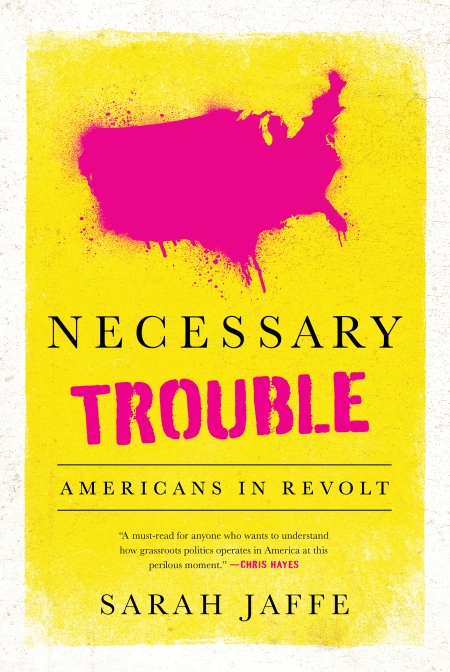
Resisting the far right, confronting antisemitism, reversing the climate emergency, adapting to the changing place of work in daily life and communities will be no mean feat. The Labour Party will continue to be a key part of that process though whether it helps or hinders the feat remains to be seen. Prior to Work Won't Love You Back Sarah Jaffe’s earlier book Necessary Trouble while focussing on America is testament to the conditions and prospects of what in activist-speak is termed ‘movement-building.’ Published in 2016, the year Trump was elected President, and Jeremy Corbyn re-elected Labour leader, the question five years on must be how those conditions and prospects shape up currently in the era of Biden, and Starmer. Jeremy Corbyn, and in the USA Bernie Sanders, sought to construct a politics that fused party and movement, whatever the scale of their achievement in the end both failed. A failure both electorally and with regard to this fusion, for the party as movement too. Of course, the two are related, when one loses, both lose and as Rodrigo Nunes argues in Neither Vertical nor Horizontal: A Theory of Political Organisation finding a way through this impasse to build anew requires going beyond unhelpful binary oppositions for any signs of left renewal.
Millennials, zoomers, post this and that, fully automated wotsit, there is an unnerving tendency for the left to believe that in order to be relevant only all things brand spanking new will do. Yet to learn from the past doesn’t imply an aversion to the changed conditions of the present. Sylvia Pankhurst: Sexual Politics and Political Activism by Barbara Winslow is a powerfully written rejoinder to such ahistoricism, Sylvia’s story is of militant internationalism, committed class politics, the labour movement central to effecting change. An unrepentant communist, Sylvia Pankhurst represented a kind of feminism the establishment would rather not associate with women winning the vote, we should. Editors David Featherstone and Christian Høgsbjerg's The Red and the Black: The Russian Revolution and the Black Atlantic do something similar in challenging the conventional view of 1917 which makes precious few links to an emergent oanti-racism and black radicalism of the same period from America to empire. Of course neither the suffragettes nor 1917 are any kind template for Black Lives Matter or the movement thaf erupted in the wake of the murder of Sarah Eveard but neither should we be tempted to assume that the only fitting destination for such histories is a dustbin. The latest issue of the journal Twentieth Century Communism takes as its theme ‘ sexuality, respectability and communism’ learning how Dutch communists in the 1940s sought to spark a sexual revolution by distributing condoms in factories just one gem to discover when history is suitably retrieved. For those of a certain age 1989 seems just like yesterday while for millennials and zoomers its history, ancient history. Yet the epochal events of that year and those they helped shape afters are very much a part of our present. Revolutionary Rehearsals in the Neoliberal Age edited by Colin Barker, Gareth Dale and Neil Davidson could perhaps be more accurately titled ‘revolutionary reversals’ , helpfully contributors chart the various ruptures of 1989 from Eastern Europe and South Africa to Latin America. Any kind of British revolution is so distant it might as well be non-existent yet our world remains shaped by change on this kind of dramatic scale, mostly for the worse, a critical internationalist left cannot afford not to learn these lessons of defeat rather than simply celebrate the moment of victory and never mind the rest.
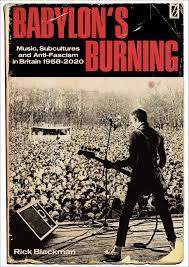
The cultural front will scarcely be acknowledged in either Labour Party Conference proceedings or much of the fringe, whereas at The World Transformed it is as close to centre stage(sic) as cultural politics gets in the arena of the party political. This is as much of a division in Labour, some would argue an even more significant division, as left vs right. Marcus Gilroy-Ware’s After the Fact? The Truth About Fake News details how the media is both a product of politics and produces an entire culture not simply headlines and bulletins. It is these means of production that generate fake news on the scale of anti-mask, anti-vaxx witnessed during the pandemic. What kind of left is equipped to acknowledge this let alone challenge it? As Marcus shows, one that contests the cultural front. National liberation movements, often out of necessity, have understood the role of what writer Michael Lavalette calls ‘cultures of resistance’, specifically in Michael’s new book Palestinian Cultures of Resistance where his focus is on Palestine’s ‘national resistance literature’ of the 1960s to early 1990s. With the huge, yet reactive, spurts of Palestine solidarity protests whenever Israel launches its attacks on Gaza and the West Bank it is surely time to provide a platform for the modern-day versions of such cultural resistance for a broad, popular, pro-active movement of Palestine solidarity to take shape. William Morris might not quite fit the label ‘national resistance literature’ but it’s not far off what out of history he provides us with. Quintissentially English yet avowedly internationalist his poetic tribute to the 1871 Paris Commune, The Pilgrims of Hope in a new edition with an introduction provided by Michael Rosen couldn’t be more effective as a response to the fiction that Morris did a nice line in floral wallpaper and that’s about it. Rather he was, and remains, a true English revolutionary. For me Rock against Racism (RAR) 1978-81 remains the pre-eminent practical example of the fusion of politics and culture. It may be generational but to my mind there’s been nothing like it since, and more’s the pity. In Babylon’s Burning : Music, Subcultures and Anti-Fascism in Britain 1958-20 Rick Blackman uniquely provides not only a spirited account of RAR but both a prehistory and postscript of movements of ‘pop n politics’ which both inspired it and were inspired by.
By means of escape from Labour’s conference floor or all that hard thinking at The World Transformed a little crime fiction might not go amiss with almost as much intrigue, conspiring and backstabbing as factional warfare manages to conjure up. Chris Brookmyre’s 2019 Fallen Angel is now out in paperback managing to combine a critique of corporate PR, exposure of the murky appeal of conspiracy theorising and an at times mesmerising plot of murderous intent. Or his latest The Cut which uses one of his favourite devices revisiting an old crime to find not all was what it seemed, not even remotely. Pure escapism, or a means to view Labour politics with a new eye after a good night’s read?
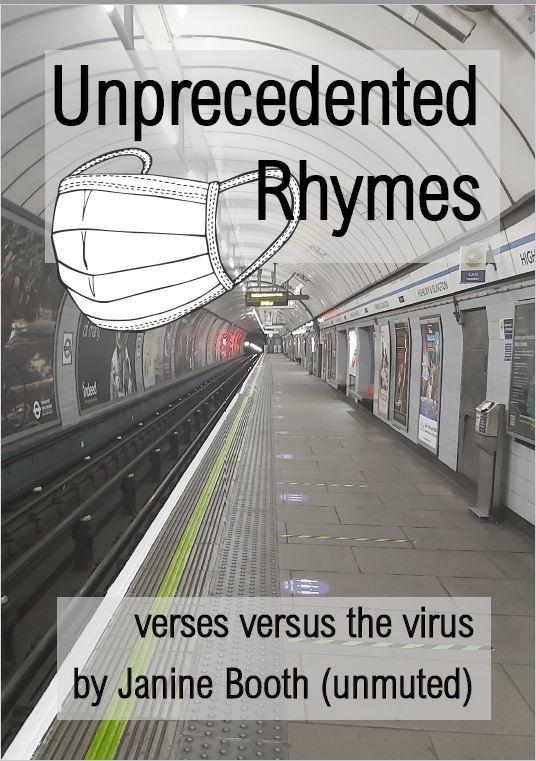
Alternatively if in Brighton for conference and fringe a read to remind delegates and visitors of the place when back home instead of a stick of rock that will only rot our teeth. Attila the Stockbroker, the bard of Brighton and Hove Albion, member of nearby East Worthing and Shoreham CLP, punk poet and ranter of considerable repute, unforgettable live, nearly as good to read, Heart on My Sleeve: Collected Works 1980-2020. Or Janine Booth, fellow poetic ranter with a socialist-feminist tendency, labour historian, RMT activist, member of Lewes CLP down the road, one of her CLP’s conference delegates, pioneer of the Spoaken Word night in the town. Her latest poetry collection Unprecedented Rhymes : Verses versus the Virus bang up to date Covid poems and poignant, the apparent absence of iambic pentameters notwithstanding.

Or why not serve up a supper after a hard day at conference with an Ed Balls recipe book ? Not a sentence I’ll admit I had ever previously imagined myself writing. Appetite: A Memoir in Recipes of Family and Food is warm, and endearing and with enough culinary insight and originality to be taken seriously which left me wondering why so few of these qualities shone through when Ed was a frontline politician. Labour party culture and Westminster expectations have a lot to answer for. Only quibble not too much for us vegetarians, volume two, Ed Balls saves the planet one recipe at a time? Reinvention complete, Ed Balls eco-warrior
Before Blair, Brown (and Balls), Miliband, Corbyn, Starmer came those long years of defeat 1970-1997. This Labour Conference follows the 2010-21 years of Labour defeats, plenty would predict these won’t end any time soon either. That earlier period was marked by a critique in and around the party of the limitations of labourism with the newly translated works of Italian Marxist Antonio Gramsci a huge influence. A new biography Antonio Gramsci by Andrew Pearmain provides the political-historical context that explains, but never restricted, Gramsci’s ideas to serve as a ready-made introduction for new generation left intellectuals. The most significant figure applying Gramsci’s ideas to an understanding of both Thatcherism and Labour’s defeats, in the face of, was Stuart Hall. James Procter’s short, and very accessible book Stuart Hall is an excellent introduction to his work for those unfamiliar and a reminder for those who were once familiar but the years since have dimmed the memory, and perhaps the politics.
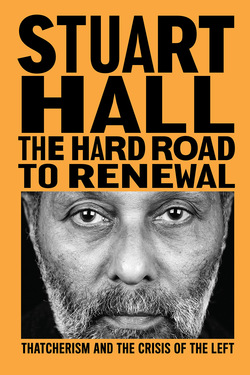
Which brings me to my number one book to help read the 2021 Labour Conference and afters, to guide our ideological way through the debates at The World Transformed. First published in 1988 following 1987 Neil Kinnock and Labour’s third successive General Election defeat, Labour in 2021 and now reissued Stuart Hall’s The Hard Road to Renewal: Thatcherism and the Crisis of the Left consists of his hugely original essays from these years. Stuart pioneered the analysis of the Thatcherism as a decisive break with the post-war consensus, as neoloiberalism we've been living with the consequences. Uniquely he refused to divorce this from a critique of the left's own failings , not as a cover for either the Labour right or hard left, but something different. And that something would be founded on ideas and coalitions, a new common sense, a hegemonic left. Still relevant, highly readable, the connections between those defeats andc the reasons for back then and now are uncanny. Readers who make those connctions won't much cheerier about Labour's immediate prospects but they will be prepared for a road that may be hard yet full of possibility. What better take home for politics after Brighton ’21 could there possibly be?
Note No links in this review are to Amazon, if you can avoid giving money to billionaire tax-dodgers who profit from their employees’ low wages and poor working conditions please do.
Mark Perryman is the co-founder of the self-styled ‘sporting outfitters of intellectual distinction’ aka Philosophy Football. His latest book is Corbynism from Below